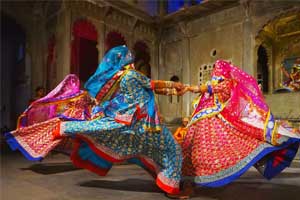India is a country of diverse cultures, languages, and traditions, and this diversity is vividly […]
![]()

Culture and Tradition: The Backbone of Societies
Culture and tradition play a vital role in shaping societies across the globe. They are the backbone of every civilization, shaping the way people live, think, and behave. Culture encompasses the values, beliefs, customs, and traditions of a particular community, while tradition refers to the practices and customs that have been passed down from generation to generation.
Culture and tradition are significant because they help people to understand their history, roots, and identity. They provide a sense of belonging and enable people to connect with their past, present, and future. Moreover, they help to preserve knowledge, skills, and practices that are essential to human survival and well-being.
Every culture and tradition has its unique features that make it distinct from others. They reflect the diversity and richness of human experiences and provide a unique perspective on the world. Culture and tradition are also dynamic and evolve over time. They adapt to changing circumstances and reflect the shifting attitudes and beliefs of people.
The preservation of culture and tradition is crucial to maintain the diversity of the world’s societies. However, the rapid pace of globalization and modernization is threatening many of the world’s traditional cultures. Many communities are losing their languages, customs, and traditions as they adopt modern ways of life.
Therefore, it is essential to promote and preserve traditional cultures and practices to ensure the continuity of human heritage. Governments and organizations can play a crucial role in preserving traditional cultures by supporting cultural events, museums, and educational programs that promote awareness and appreciation of traditional cultures.
In conclusion, culture and tradition are an integral part of human societies, shaping the way people live, think, and behave. They reflect the diversity and richness of human experiences and provide a unique perspective on the world. Therefore, it is crucial to promote and preserve traditional cultures to ensure the continuity of human heritage.
India is a country of diverse cultures, languages, and traditions, and this diversity is vividly […]
![]()
Cultural History of India: India is a land with a rich and diverse cultural history […]
![]()
Superstitious Culture in India: India is a land of rich traditions, diverse religions, and vibrant […]
![]()
The Jarawa tribe is one of the indigenous tribes of the Andaman and Nicobar Islands […]
![]()
Africa is a continent of rich cultural diversity, home to thousands of ethnic groups and […]
![]()
The Middle East is a region that stretches across southwestern Asia and northeastern Africa, encompassing […]
![]()
Latin America is a term widely used to describe a vast region in the Americas […]
![]()
Bharatanatyam Dress Costumes: Bharatanatyam, one of India’s oldest classical dance forms, is not only celebrated […]
![]()
South Indian Dance Forms: South India is home to some of the most vibrant and […]
![]()